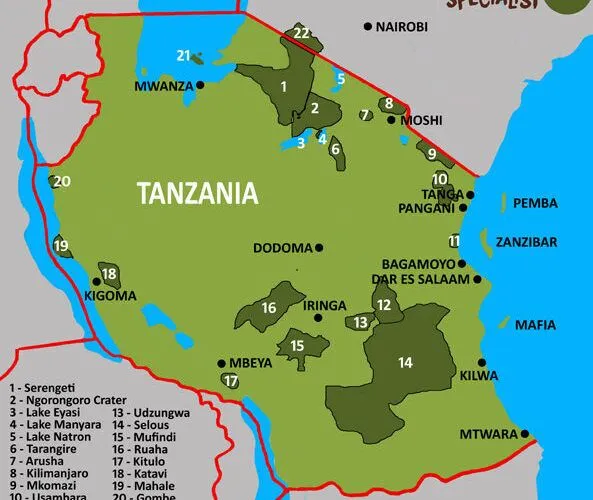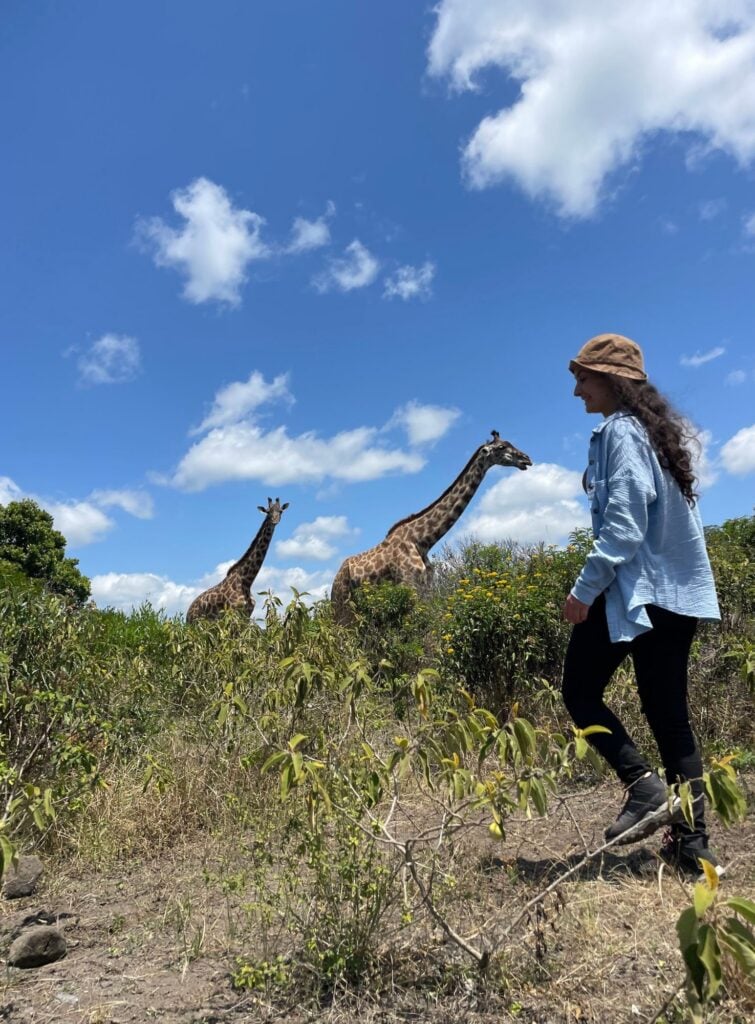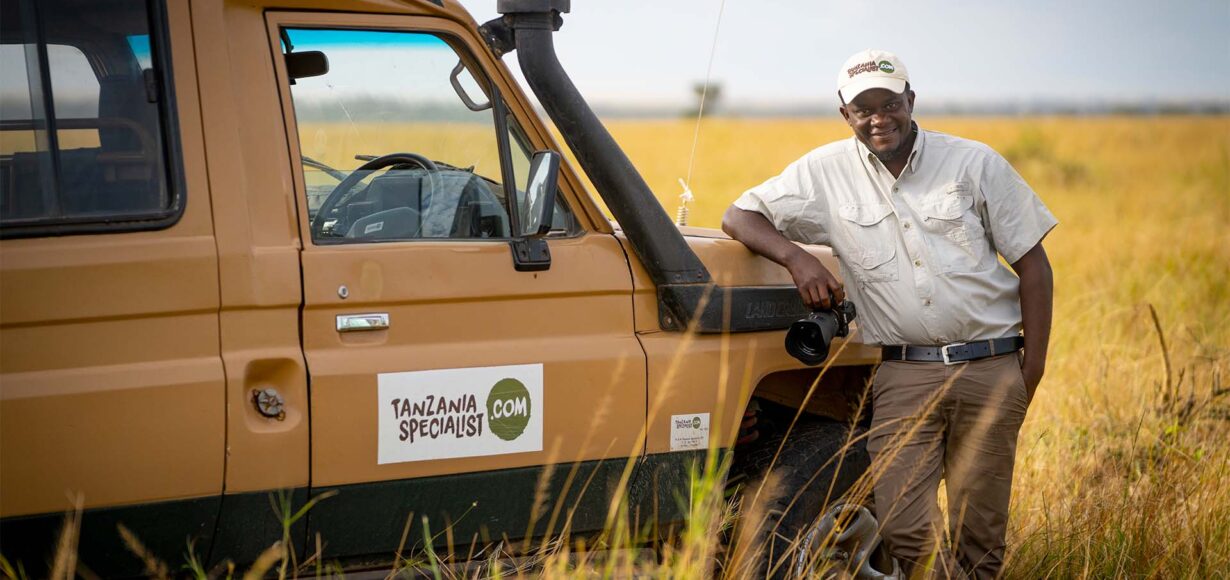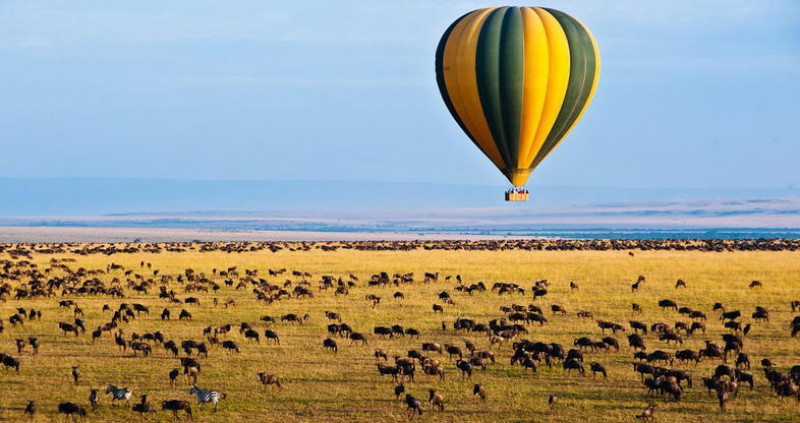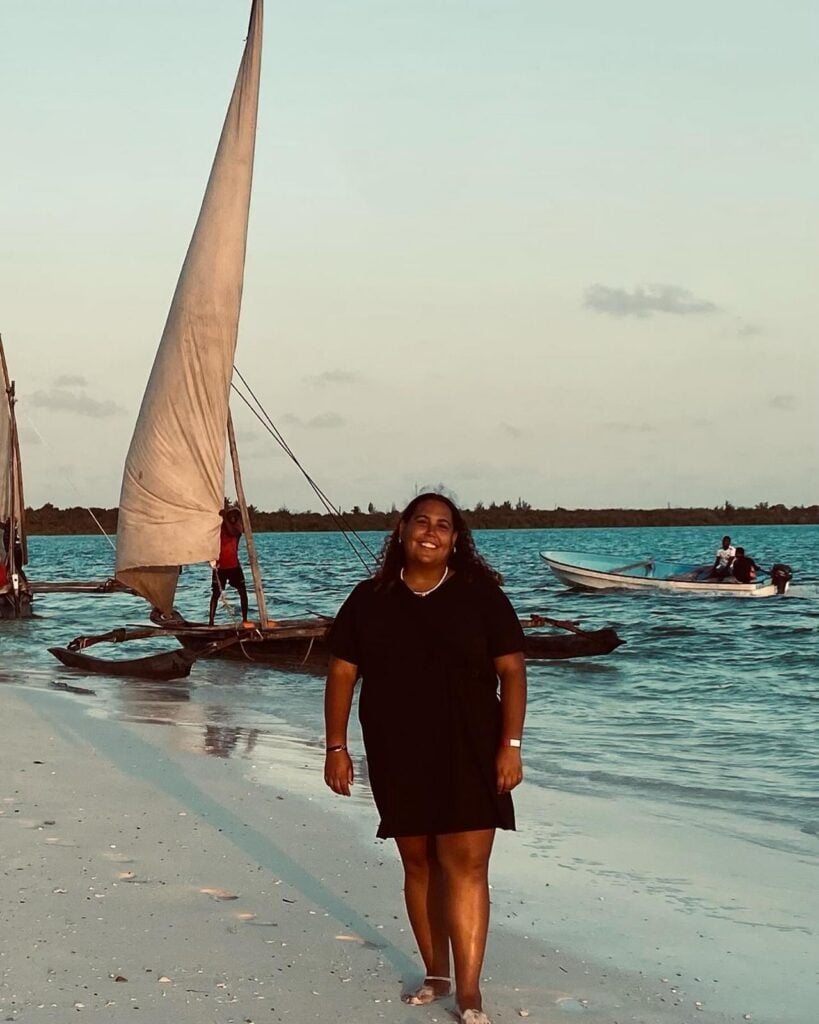
30 September 2020
Tanzania – the land of a savannah full of lions, zebras and giraffes. But also endless white beaches on the coast and on the islands. A developing country, which means that not everything is working the way we are used to. Below are some facts and tips that help you to be well prepared for your trip!
Tanzania overview
Tanzania is located in East Africa between the Indian Ocean and neighboring countries Kenya, Mozambique, Congo, Malawi and Rwanda. The population is 58 million people who belong to more than 120 different tribes. Dar es Salaam on the coast is the largest city with 2.6 million inhabitants. The official capital of Tanzania is the much smaller Dodoma, which is located in the centre of the country. More than 120 different tribes live in Tanzania and more than 100 languages are spoken in total. The largest tribes are the Sukuma, Nyamwezi, Haya, Nyakyusa and Chaggastam, each with more than a million members. However, there is no tribe that dominates, which contributes to the stable political climate.
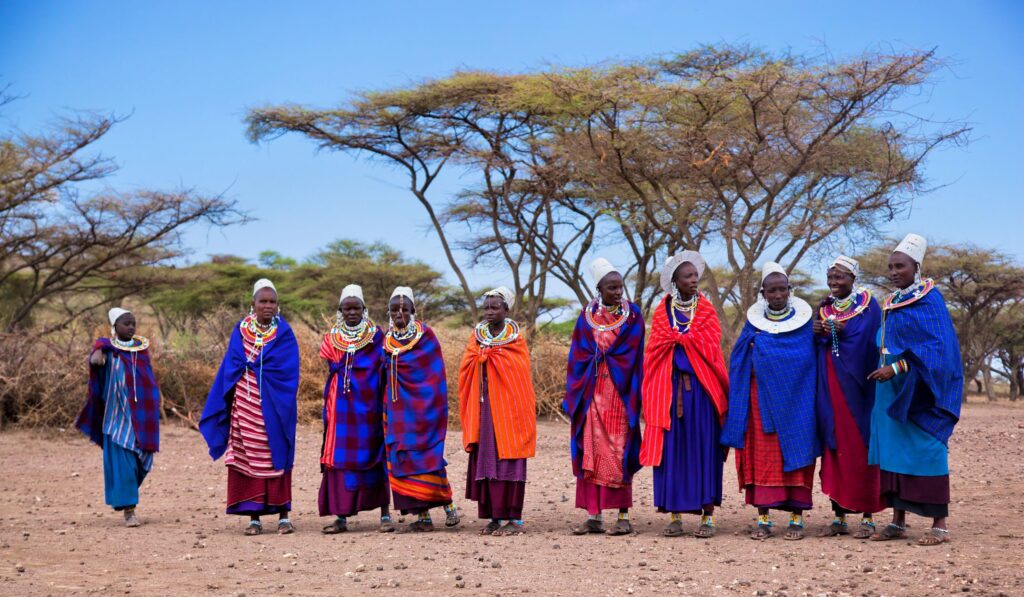
Tanzania has two official languages: English and Kiswahili. In addition, many tribes have their own mother tongue. Kiswahili is not only spoken in Tanzania, but also (partially) in Kenya, Uganda, Rwanda, Burundi, Mozambique and the Democratic Republic of the Congo. Kiswahili originates from Bantu, but also uses some English and Arabic words. In Tanzania, most people speak mainly Kiswahili, often their mother tongue and sometimes English.
Facts about Tanzania:
- Capital: Dodoma
- Currency: Tanzanian Shilling
- Population: 58 million
- Language: Kiswahili and English
- Area: 886,000 km²
- Water surface: 59,000 km²
- Neighboring countries: Kenya, Uganda, Congo, Rwanda, Burundi, Zambia, Malawi and Mozambique
- Highest point: 5895 meters (you can climb Kilimanjaro with us!)
- Time difference: Summer time UK- 2 hrs later; Winter time UK- 3 hrs later; US 7-10 hrs later
- Most popular places: Serengeti National Park, Ngorongoro Crater, Kilimanjaro and Zanzibar
Safari in Tanzania
The term safari is Kiswahili and literally means travel. In the western world, however, we mainly associate a safari in Africa with observation of wild animals. The most popular animals are the Big Five: lions, elephants, buffaloes, leopards and rhinos. But Tanzania also has countless other impressive animal species and hundreds of beautiful, colorful birds. You can see them all with Tanzania Specialist! Your private guide will be happy to tell you all about the animals, birds and plants you encounter along the way. During the safari you will use a 4 × 4 Landcruiser Jeep with a foldable roof from Tanzania Specialist. Tanzania Specialist only organizes private safaris, which means you don’t have to share the car with anyone. You decide when the safari starts and ends. In consultation with your guide, you can decide the schedule for the day. For example, if you suddenly feel like ending the day at the pool, that’s no problem. With a little luck you can even spot some wild animals from there.
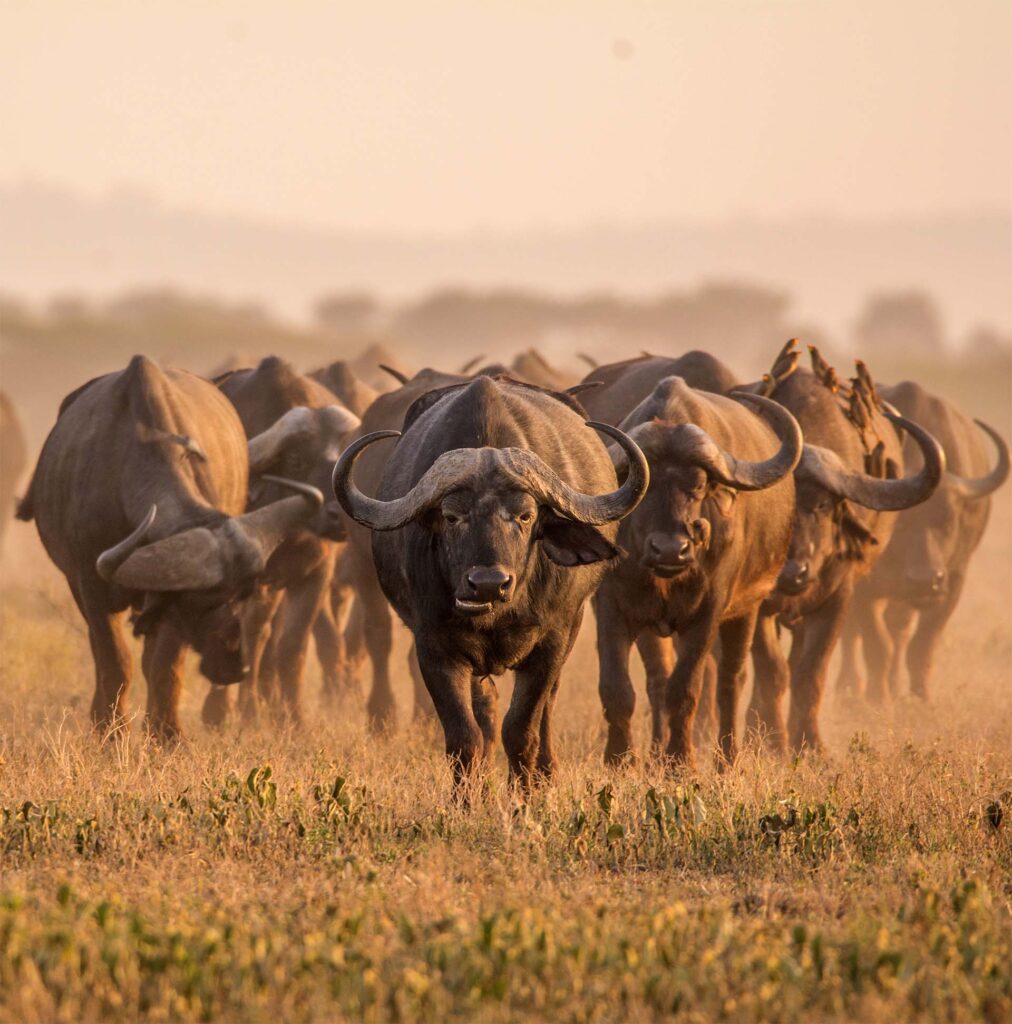
Visit local tribes
During the safari in Tanzania it is possible to visit a traditional tribe. The most famous tribe in Tanzania is probably the Maasai tribe. These are nomadic people who live off their cattle. The Maasai are known for their beautiful pearl jewelry, long spears in their hand and red shukkas (blankets that they wear as clothing). They live in semi-permanent huts – called manyattas – that are made of grass and dung. Traditional dance consists of jumping as high as possible. The oldest tribe in Tanzania, the Hadzabe, live around Lake Eyasi. Until recently they lived very isolated, but nowadays they accept to be visited by tourists. The Hadzabe still have a traditional lifestyle, which means that they mainly live from hunting. And just like the more southern San and Xhosa, they communicate in a click language.
It is good to know that the animals are most active at sunrise and sunset. Then the temperatures in Tanzania are pleasant and animals are looking for food. The chance to see the animals in action is best during that time. But in the middle of the day there is still plenty of wildlife to see.
Important information when going on safari in Tanzania
When traveling to Tanzania it is good to know what to expect. Below is the most useful useful travel information.
Visa for Tanzania
To enter Tanzania, you need a visa and a passport that is valid for at least six months upon return. You can apply for a visa in advance at the Tanzanian embassy in London/ Washington and costs 40 British pounds/ 50 US Dollar. It is also possible to request it upon arrival at the airport. In this case it costs 50 US dollars. If so, have a pen and $ 50 in cash ready. The waiting time is about an hour. Anyone traveling to Tanzania by land should best arrange the visa in advance to avoid long waiting times at the border.
It is good to check with the embassy before traveling to see if the above rules are still valid!
Embassies and consulates
United Kingdom
Tanzania High Commission
3 Stratford Place
London W1C 1AS
e-mail: visa@tzhc.uk
website: www.uk.tzembassy.go.tz
United States
Embassy of the United Republic of Tanzania
1232 22nd St. NW
Washington D.C 20037
(202)884-1080 and (202)939-6125/7
e-mail: ubalozi@tanzaniaembassy-us.org
website: www.tanzaniaembassy-us.org
Climate in Tanzania
The climate in Tanzania is characterized by two different seasons, which hardly differ from each other. The temperatures are pleasant throughout, but they can vary due to differences in altitude. Temperatures in the highlands are usually cooler, with a significant difference between day and night temperatures, while the coast is always warm and humid. During the day the temperature can reach 35°C /95°F.
Tanzania has two rainy seasons. The short rainy season lasts from mid-October to the end of November and the long rainy season from the end of March to the end of May. However, during this time you can also go on a trip to Tanzania. Most of the roads are passable, the parks are lush and green and there are fewer tourists. The rain usually falls in the afternoon while the mornings are sunny. There is a chance that dirt roads in the parks become impassable due to heavy rain. In this case we are always looking for an alternative route!
Safety
Tanzania is a safe destination for a vacation. It has even been named the safest country in Africa! The country is politically stable. Nevertheless, there is still a relatively high level of poverty in the country. It is therefore advisable to follow a number of rules. However, if you heed the following advice, which actually applies in every major European city, you are safe:
- Never leave your passport, money or valuables open in the room
- Put your valuables in a locker or hand them in at the reception, where they will be kept in special lockers
- Do not leave important items (such as money or your bag) unattended in the safari vehicle, even for a short time
- Leave precious jewelry at home. You can wear a (simple) necklace, watch, or wedding ring, but avoid flashy jewelry
- Don’t go out on the streets in the dark
- Also, be wary of pickpockets during the day
- Only use registered taxi companies if necessary
Healthcare in Tanzania
The quality of health care in Tanzania varies. In big cities, medical facilities are fair to good, but waiting times are long and prevention is better than cure.
Vaccinations
Getting vaccinations when traveling to Tanzania may be advisable. However, as we are not medically qualified and guidelines may change during the year, we recommend that you consult the health department well in advance of your departure to get the latest information on any vaccinations that may be required for Tanzania.
What about the yellow fever vaccine?
Information regarding the yellow fever vaccine can sometimes be confusing. We’re here to clarify this point for you, when it comes to entry in Tanzania.

You do not need a yellow fever vaccination if you are travelling directly from Europe or the United States to Tanzania?
The government of Tanzania only requires proof of yellow fever vaccination upon arrival if you are traveling from a country with risk of yellow fever (click here to view the list of high-risk countries).
However, if you have a transit in one of the high-risk countries for more than 12 hours, you will be required to get vaccinated. However, we firmly recommend checking with your doctor as he/she will advise you.
Should your doctor recommend against the vaccine for one of these reasons, you can still travel to Tanzania from a high risk country with an official letter from the doctor. Showing it to the immigration officer upon arrival would waive the requirement and your trip will go on as planned!
According to the World Health Organization’s classification, Tanzania is Yellow fever free.
Vaccination card and first aid kit
Make sure that all your vaccinations are documented in your vaccination card. If you don’t have one yet, you can get one from your doctor. Don’t forget to take this with you. Customs could ask for this on arrival. In addition, it provides important information in case of a doctor visit. It is also advisable to bring your own first aid kit to Tanzania. This should include plasters, (sterile) gauze, anti-blistering agents, iodine, and medicines for common ailments such as headaches and bowel problems, among other things. It is also good to bring sanitary towels and tampons. These can be difficult to obtain in some areas.
Dress code in Tanzania
Casual clothing is worn in Tanzania. It is common practice to cover shoulders and wear skirts and pants that reach below the knees. In Zanzibar, most women cover their hair as well. However, these rules are not very strict. The accommodations you stay in are not subject to strict dress codes. So shorts or skirts are no problem here.
Tanzania is south of the equator, so the sun can be very strong. Too much sun can lead to dehydration, nausea, dizziness, or headaches. It is therefore good to wear a hat and dark sunglasses during the day. Sunscreen is also a must.
After sunset it is advisable to wear long trousers (and possibly long sleeves) because of the mosquitoes. Bring a sweater or jacket for the early mornings and cooler evenings, especially in the mountainous regions of Tanzania it gets chilly. We also recommend comfortable (sports) shoes and swimwear for your vacation in Zanzibar and for the lodges with a swimming pool.
During the safari it is common to wear casual clothing, preferably cotton and in safari colors. We do not recommend wearing dark or bright colors (black, blue, red) during the safari – this will attract flies and insects. Colors that don’t stand out, like khaki or olive green, are best.
Food
Food and drinks in the lodges, camps and resorts in Tanzania are mostly European style, but with a selection of Tanzanian dishes. There is a full English breakfast with eggs, bacon, tomatoes, cereal and delicious tropical fruits served in the mornings. Lunch often consists of hot meals and dinner is a three or more course meal. In smaller lodges and camps, meals are usually served as a set menu. The larger lodges usually offer lunch and dinner in buffet form. The local beer (the most famous being Kilimanjaro, Serengeti and Safari) is good to drink and there is often a choice of several wines. The tap water is not suitable for consumption. That is why there is a bottle or jug of purified drinking water in the rooms. You can also buy bottled drinking water at each lodge. Make sure you are drinking enough water. The heat in Tanzania can cause you to unconsciously lose a lot of liquids. During the safari you will receive lunch as a packed lunch, which you can enjoy at special picnic areas along the way.
Money in Tanzania
In Tanzania you pay in the local currency. The local currency is the Tanzanian Shilling, which is available in 1000, 2000, 5000 and 10,000 Tsh banknotes, as well as 50, 100, 200 and 500 Tsh coins.
The Tanzanian shilling is not available and tradable outside of Tanzania. It is therefore best to bring cash (banknotes) in Euro or US dollars (banknotes from 2006). It’s also nice to bring some change so you can tip the staff if you wish. The best way to change money is when you arrive at the airport.
You can find ATMs at international airports as well as in the larger villages and in the city. Unfortunately, they don’t always work, so it is good to plan ahead.
Credit cards can also be used. Mastercard is accepted everywhere, Visa and American Express not in all places. In the lodges you can pay with Euros, US-Dollars or credit card and also exchange US-Dollar or Euro for Tanzanian shilling at an (usually) average exchange rate. In the camps, it can be difficult to pay by credit card sometimes due to the remote location and poor connections.

Tips
Tipping is not mandatory in Tanzania. However, the wages in Tanzania are not high and the employees appreciate tips. We recommend that you only tip if you are satisfied with the service. This often includes small amounts, such as a $ 1 per person tip for those carrying your suitcase to the hotel room. Often it is also possible to give a general tip to the staff when checking out. At the reception there is usually a box specially designed for this purpose.
You can tip your private guide at the end of the safari. Of course, tips should always come from the heart and cannot be an obligation. As a general guideline, we advise to give 10 USD per day per person in your group, for the duration of the safari, as the guide is available to you for the entire safari. Our guides earn decent salaries, but these tips are often used as savings for the extended family (and can for example help a cousin finish school).
Photography and video
Many people want to take beautiful nature photos during a game drive. In this case, it is good to keep a few things in mind:
- Bring enough memory cards and extra batteries. These are not or hardly available in Tanzania
- Bring lens caps, cleaning cloths, and a tight-fitting camera bag to protect the camera from dust
- Bring a UV or light filter for the highlands and to protect the lens
- A zoom lens (e.g. 300 mm) is recommended for photographing wild animals
- When charging batteries, note that some tent camps are only powered by a generator for a few hours a day and the voltage fluctuates
- The use of drones is not permitted
- When taking pictures of locals, always ask for permission. Nowadays people are more used to cameras, but not everyone likes them. Seeking permission shows respect!
Phone calls from Tanzania
With a cell phone, you have coverage in many places, but there are places where there isn’t. The lodges and camps in the national parks usually always have a hand radio. They can therefore be reached in an emergency, but this connection is not intended for long phone calls home. Tanzania’s country code is +255.
Electricity
The voltage in Tanzania is not the same as in Europe. The hotels in Tanzania have a voltage of 220-240 volts, which can, however, fluctuate. The sockets are three-pin (English). It is recommended to bring an adapter. Please note that electricity in many lodges and camps is not available 24/7.
Insurance
Travel insurance
We recommend to our customers to get a good travel insurance. A travel insurance often not only covers medical expenses, but also damage or loss of luggage.
Travel cancellation insurance
We also recommend that you get a travel cancellation insurance. Sometimes insurances will only reimburse you up to a certain amount in the event of cancellation – you should check this carefully!
Flying Doctors Insurance
The AMREF Flying Doctors have been conducting medical evacuation flights in Kenya, Tanzania and Uganda since the 1950s. This Flying Doctor Service is the only flying ambulance with its own doctors and pilots that is on standby 24 hours a day. Flying Doctors Insurance is a supplement to your regular travel insurance and is not compulsory. In an emergency, however, they arrange for an immediate evacuation from remote areas to the hospital in Nairobi. The insurance costs 25 € per person for a safari of a maximum of fourteen days in Kenya and Tanzania.
Public holidays in Tanzania
In addition to the well-known Christian holidays, Tanzania has the following national holidays:
- January 12th: Revolution Day in Zanzibar
- April 26th: Union Day
- May 1st: Labor Day
- July 7th: Saba Saba (farmers’ day)
- October 14th: Nyerere Day
- December 9th: Independence Day
Would you also like to enjoy a vacation in Tanzania?
Can you already picture your vacation? Relax on the white beaches of Zanzibar with a cocktail in hand and gather exciting and unique impressions during the safari. Tanzania has many highlights and promises unforgettable memories. Would you like to learn more about booking a vacation to Tanzania? Then take a look at our Tanzania tours. The trips are carefully planned by us in accordance to your preference, but you can also organize your trip to Tanzania yourself. Do you have any specific questions? Please contact us and we will be happy to inform you about all the possibilities!
